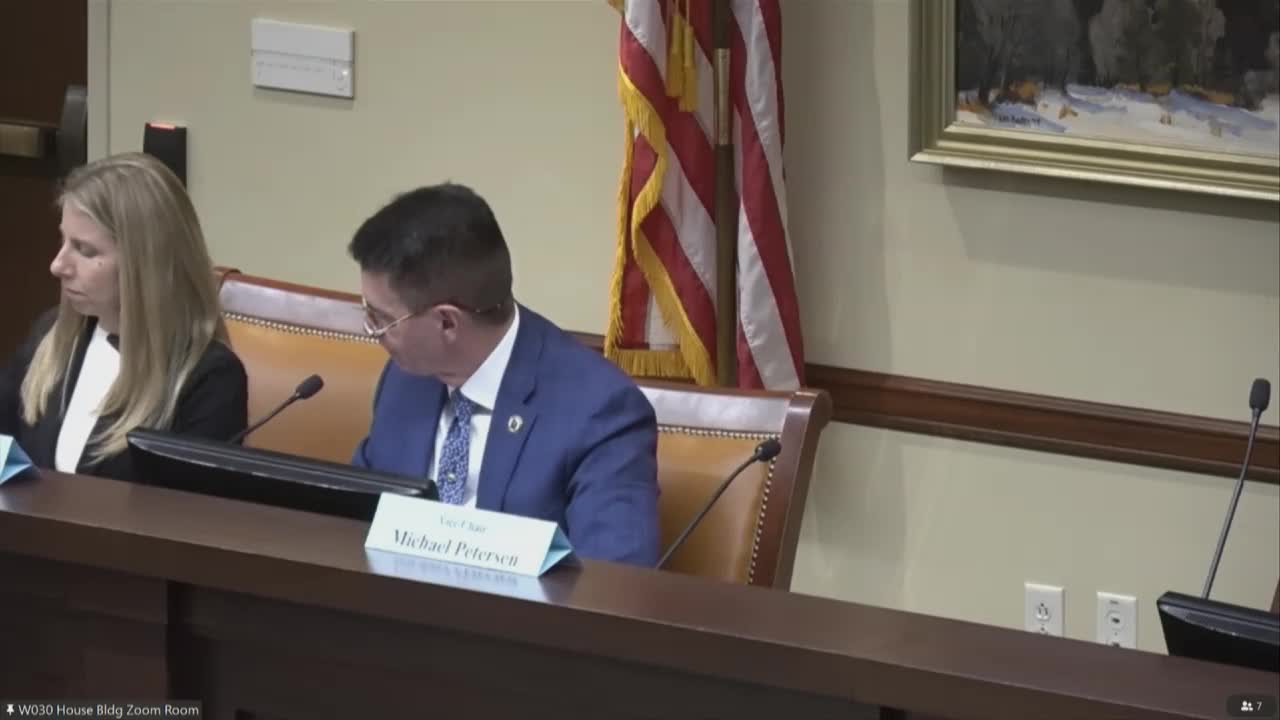House committee advances bill to require some corporations to disclose large political donations
Get AI-powered insights, summaries, and transcripts
Subscribe
Summary
The House Government Operations Committee voted to pass the first substitute of House Bill 95, which would require corporations to disclose contributions if they give $25,000 or more to a single candidate or $100,000 or more statewide during a campaign cycle.
The Utah House Government Operations Committee on [date of meeting] voted to advance the first substitute of House Bill 95, a measure that would require corporations to disclose certain political contributions to state authorities. The bill was presented by Representative Mike Peterson and passed the committee for referral to the full House.
Representative Mike Peterson said he introduced the bill after discovering during his own campaign that a corporation had contributed widely across Utah but was not listed in the lieutenant governor's disclosure system because, under current code, corporations are exempt in some circumstances. "By the time I was done, I discovered that they had actually spent $320,000 in our state in contributions last year," Peterson said, and told the committee he had to review multiple filings to assemble the totals. "And that's the bill," he added when summarizing the proposed changes.
The bill would require a corporation to disclose contributions when it gives $25,000 or more to a single candidate or $100,000 or more in aggregate to Utah campaigns in a year. Peterson said the thresholds were chosen after consulting lobbyists and that the change is meant to make large corporate donors visible without duplicating existing PAC reporting.
Committee members asked whether the bill would affect corporate donations to political action committees (PACs). Peterson and committee members clarified that the substitute does not change PAC reporting requirements; corporate donations to PACs remain subject to existing PAC reporting rules. Representative McPherson asked whether the change could create duplicative filings; Peterson noted corporations currently are not required to file in the same way and framed the bill as addressing a gap in transparency.
One public commenter, Chase Thomas, senior policy advisor for Alliance for Better Utah, spoke in support of the substitute, saying the organization preferred broader disclosure but that the substitute would "result in more transparency for the citizens of Utah." Maddie Topik of the lieutenant governor's office told the committee the office had "no major concerns" and that enforcement would be a policy matter for them.
The committee approved the first substitute and then voted to send the bill to the full House with a favorable recommendation. Representative McPherson cast the lone recorded opposition on the final pass out vote; other individual votes were recorded verbally as "aye." The committee did not record additional roll-call tallies in the transcript.
If enacted, the bill would make large corporate donors more directly accountable to state disclosure rules; it does not change PAC reporting and limits the disclosure requirement to the thresholds in the substitute.
